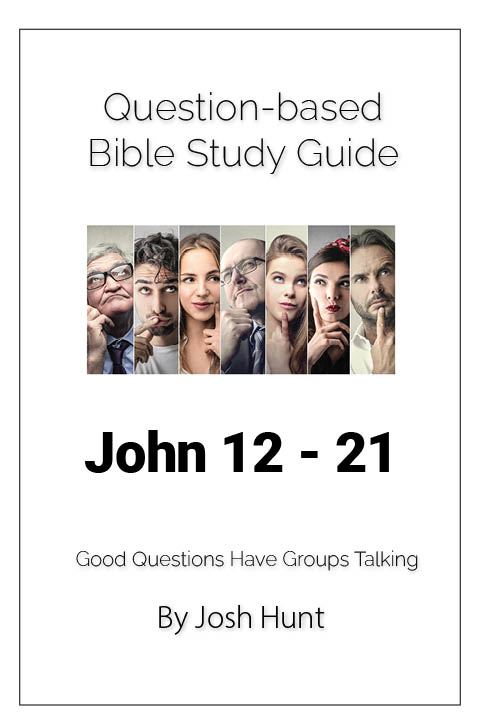John 12.1 – 19
Jesus Anointed at Bethany John 12.20 – 50 John 13.1 – 14.6 John 14.7 – 31 John 15.1 - 17 John 20.1 - 18 John 16 John 18.28 - 40 The Gospel of John is a masterpiece of storytelling. It is at once charming in its simplicity and challenging in its depth, a rare work of literature that fun-loving children and deep-thinking philosophers can share equally. John’s God-breathed account of Christ’s earthly ministry uses such elementary Greek, it reads like a child’s primer and is often one of the first books novice learners of Koiné learn to translate. Yet philosophers and theologians spend lifetimes trying to fully comprehend the profound truths John presents. John’s Gospel presents God as Father more tenderly than any other book in the Bible. It boldly and unambiguously establishes the dual nature of Jesus Christ—fully God and fully human, perfectly united in one person. And it reveals the mystery of the Holy Spirit unlike any other Gospel. Moreover, John’s narrative provides a broad range of practical lessons to guide the believer through life. Several passages come to our rescue when leading someone to faith in Jesus Christ, while others bring comfort and consolation when we are burying a cherished loved one. From the Gospel of John, we learn about our increasing estrangement from the world and our deepening intimacy with the Almighty, and we begin to appreciate the priority the Lord places on unity in the family of God. Despite its intricacy and complexity, the Fourth Gospel is usually the first book of the Bible to be read by students and new believers. Martin Luther marveled over the dual nature of John’s writing, admitting, “Never in my life have I read a book written in simpler words than this, and yet the words are inexpressible!”1 John’s approach is deliberate. Under the inspiration of the Holy Spirit, he carefully crafted each sentence to unveil the fascinating mysteries of heaven in simple language, and he painstakingly chose which facts to relate and which to leave out. In his own words, “There are also many other things which Jesus did, which if they were written in detail, I suppose that even the world itself would not contain the books that would be written” (John 21:25). Rather than pen a document that quadrupled the size of the Old Testament, he chose the “less is more” approach. Instead of overwhelming us with volumes of information, he strategically chose which stories to relate in order to accomplish his primary purpose: “So that you may believe that Jesus is the Christ, the Son of God; and that believing you may have life in His name” (20:31). Swindoll, Charles R. 2018. John. Swindoll’s Living Insights New Testament Commentary. Tyndale House Publishers. |
If you are wanting to do a particular passage or book study and can't find it, feel free to email me at josh@joshhunt.com21 Laws of Discipleship -- the book -- |



















